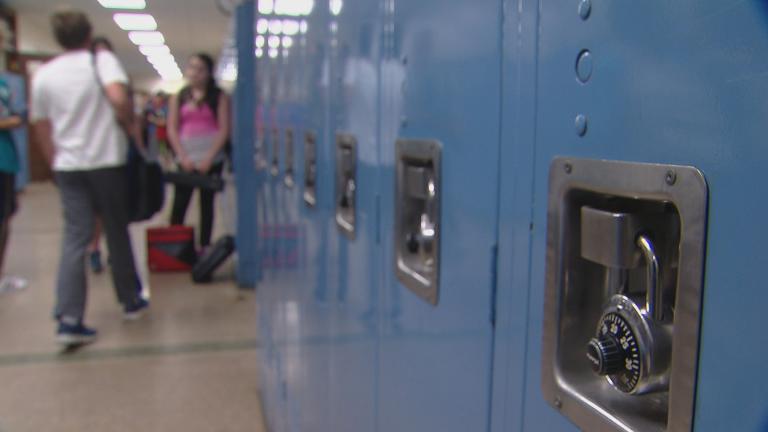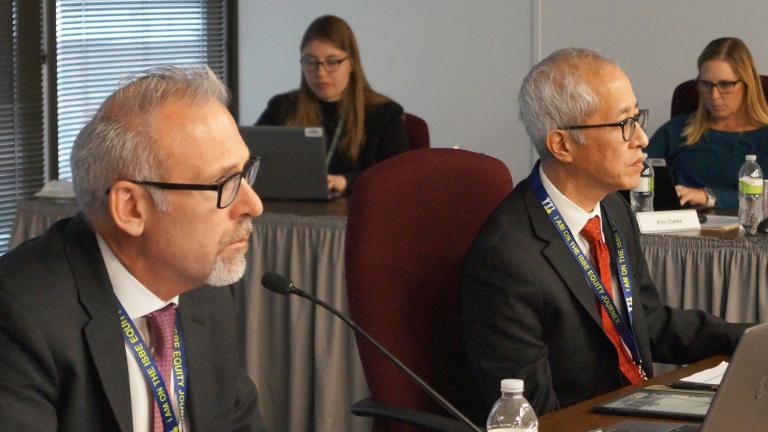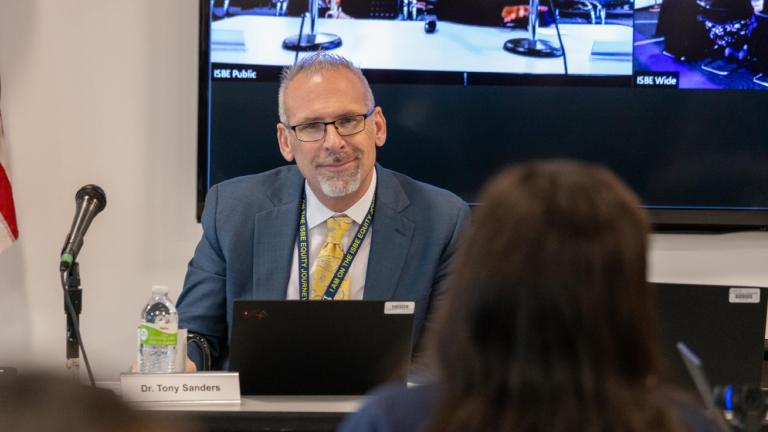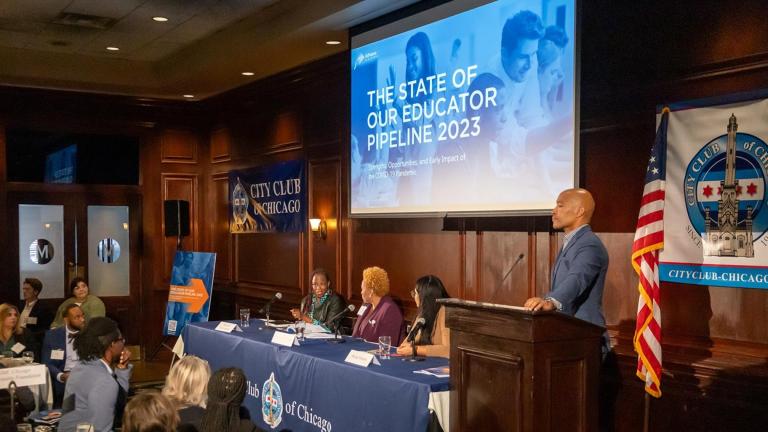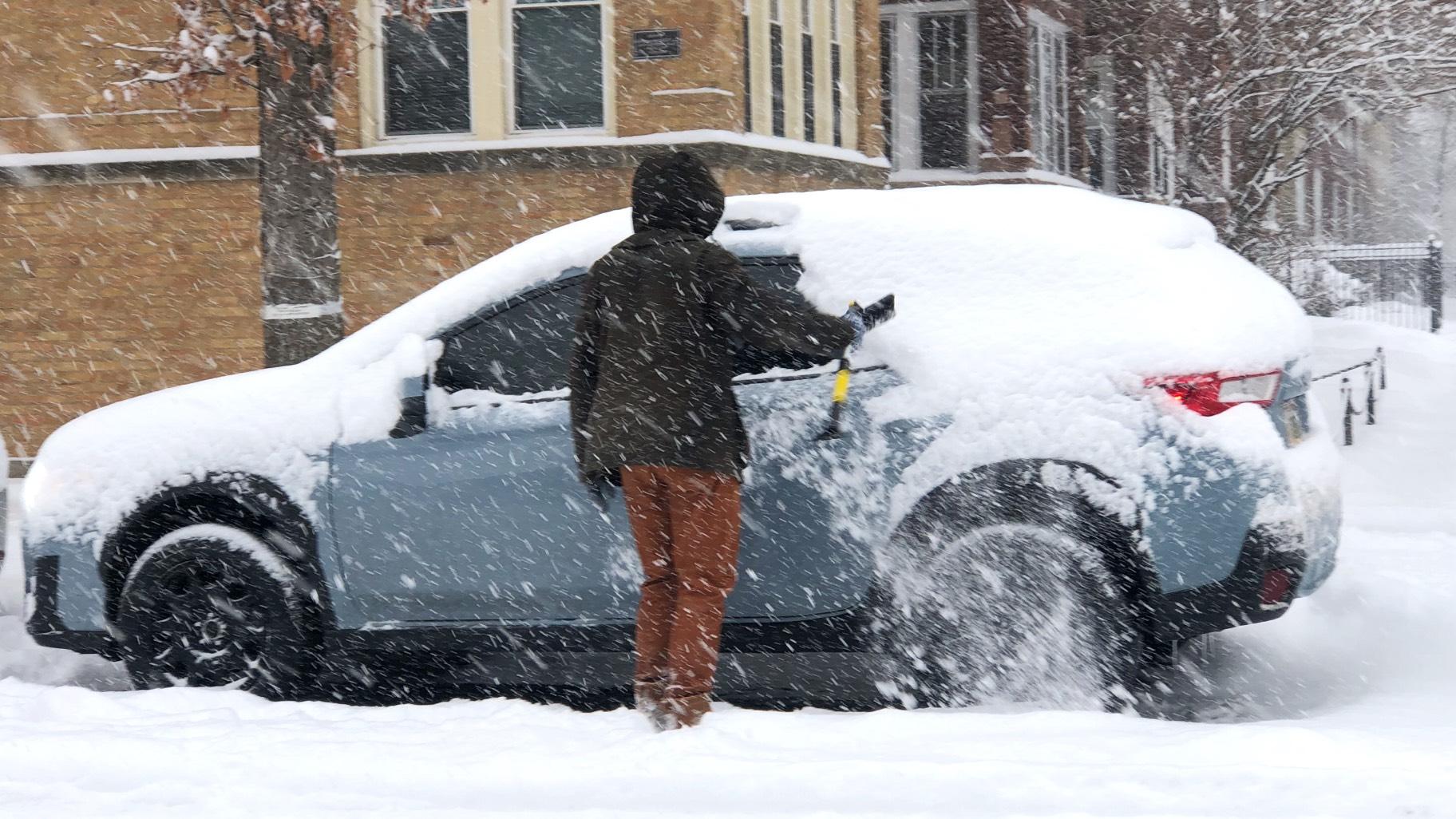 (Patty Wetli / WTTW News)
(Patty Wetli / WTTW News)
While some may not have liked it, students and teachers across Illinois became accustomed to online classes from home when COVID-19 prevention orders closed classrooms.
That doesn’t mean that every school can jump to remote learning on days like Friday, when snowstorms hit.
State law (Public Act 101-0012) allows districts to switch to e-learning if an emergency like weather prevents students from being in school physically.
But if districts want the option, they must have an electronic learning program established in advance that’s been subject to a public hearing, adopted by the school board and signed off on by the regional office of education.
“It’s locally determined,” said Jackie Matthews, spokesperson for the Illinois State Board of Education. “No one is required to have one. Some may feel it’s a good fit, and some may not.”
ISBE did not immediately have an accounting of how many of Illinois’ approximately 850 districts have e-learning policies.
The current law governing e-learning has been in place since June 2019, before the governor closed schools statewide because of COVID-19 in March 2020, and it hasn’t materially changed since the pandemic.
As snow fell and winds swirled at varying rates around the Chicago region, districts on Friday took different approaches.
Wheeling’s Community Consolidated School District 21 had planned to shift to go online, posting a message from superintendent Michael Connolly on Thursday that due to the forecast, schools would close for in-person learning.
“An E-learning day is a full day of learning consisting of both synchronous and asynchronous learning activities,” Connolly wrote, adding that teachers would send details.
Power outages changed that.
An online notice Friday gave the update:
“We are getting wide spread reports of power outages that will impact our ability to offer a full day of E-learning. As a result we are canceling today’s e-learning and will be using one our five emergency closure days. We apologize for any inconvenience and hope that everyone is able to stay safe and warm.”
Naperville School District 203 on Thursday also called for Friday to be an e-learning day, though that didn’t necessarily mean that teachers were leading virtual classrooms.
“Students will receive at least five hours of asynchronous instruction or school work through their Canvas accounts,” read a notice posted on Naperville schools’ website. “Staff members will be available from 9 a.m.-2 p.m. to respond to students’ needs. Teachers will not provide live streaming/concurrent instruction or synchronous learning. Instead, students will be given assignments aligned to current learning progression and goals. As always, the decision of whether or not to have school during times of inclement weather is made with the safety of our students and staff as our top priority.”
Chicago Public Schools, meanwhile, kept classes in-person, but canceled all after-school activities and Saturday events, including sports and after-school care.
In a notice to families, CPS wrote that because “along with education, our students rely on their schools to provide meals and a safe, warm environment,” the district “will do everything possible to keep classes in session, as long as it is safe for students and staff.”
CPS said when there’s inclement weather, the district decides what to do based on factors including the temperature, wind chill, amount of snow and ice, ability of students to get to school by bus, road conditions and building accessibility and potential for power outages or heating system problems.
There was some power trouble Friday.
A CPS spokesman said 32 schools had power outages, though it was “fully restored to more than half those schools by 1 p.m.,” and one school, Rodolfo Lozano Bilingual & International Center Elementary School, was dismissed early because of power problems that posed a safety concern.
The Chicago Teachers Union blasted CPS for its approach, issuing a statement that said “decades of divestment and privatization means Chicago Public Schools is not prepared for climate disaster. We see the impact of this not just during snowstorms, but in our schools’ aging facilities and outdated HVAC systems, many of which are twice as old as the national average.”
CTU said it will “challenge leaders who believe they are allowed to keep buildings open without power in the middle of a blizzard.”
State law requires an e-learning day contain at least five hours of “instruction or school work” and that schools provide options for students without access to the required technology, including support for students with special needs.
Districts are limited to pivoting to e-learning for as many emergency backup days are built into their school calendar. An e-learning day wouldn’t count as school not being in session, meaning that a school wouldn’t have to make up the day as it might if classes are completely canceled.
It’s worth noting a snow day doesn’t necessarily mean a canceled vacation day or an extra day before school’s out for summer; some districts’ regular calendars already go beyond the 180 days required by Illinois law. If a district has the minimum 180 days and does totally cancel classes because of snow, one of the backup emergency days would need to be used.
There’s no school Monday because of Martin Luther King Jr. Day, but as of late Friday afternoon, with bone-chilling temperatures predicated ahead, CPS had not made a decision about Monday events and Tuesday classes, with exceptions: Both the CPS SCORE! Martin Luther King Jr. Basketball Tournament for seventh and eighth graders and Sullivan High School’s MLK Basketball Tournament will be rescheduled rather than take place Monday.


